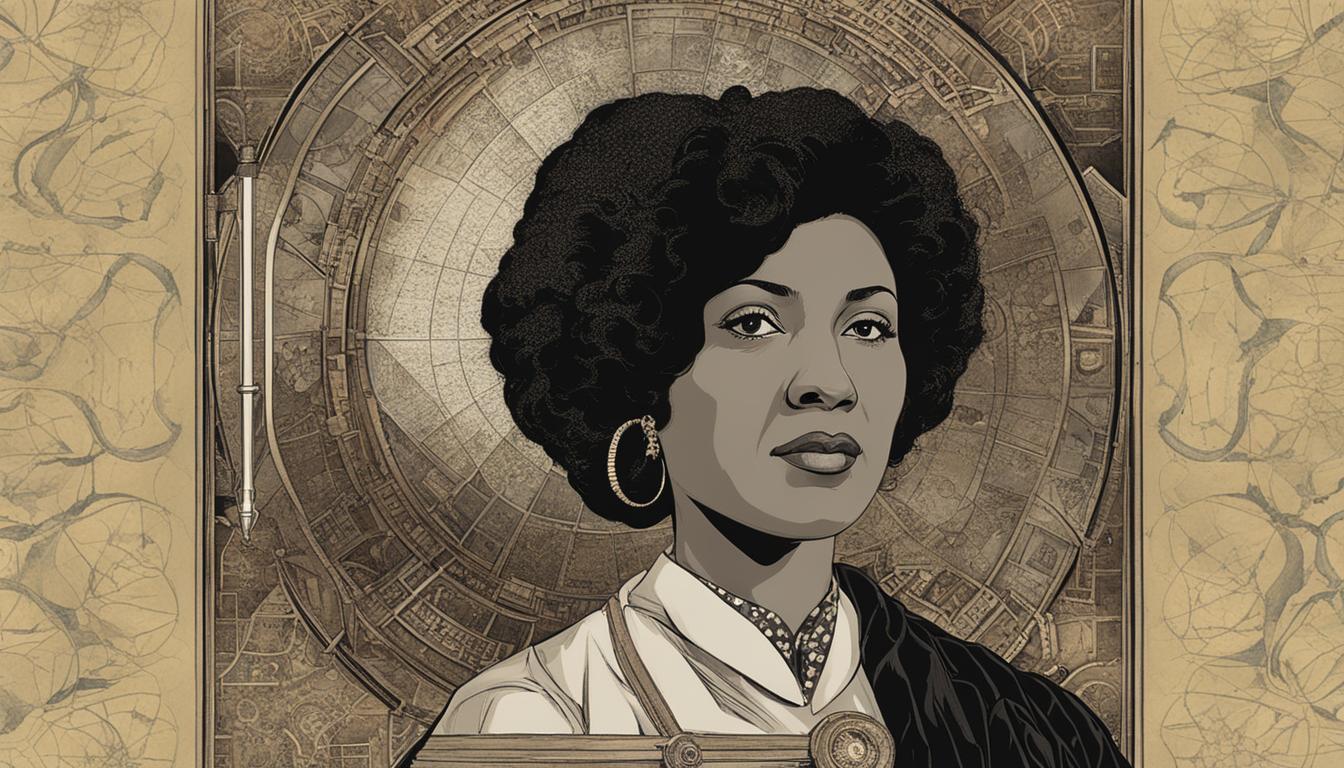Welcome to our audiobook review of “The Immortal Life of Henrietta Lacks” by Rebecca Skloot. This audiobook has garnered significant attention since it was first published in 2010, captivating readers with its poignant portrayal of one woman’s unprecedented contribution to medicine and the ethical considerations surrounding it.
Henrietta Lacks was a black woman whose cancer cells were taken without her knowledge in the 1950s and became the first human cells to survive and replicate outside the body. The book shines a light on the ethical and moral issues of using human cells in research without informed consent. Rebecca Skloot expertly intertwines medical history and personal narrative to create a captivating tale that leaves a lasting impact on readers.
In this review, we will provide an introduction to the audiobook and explore its background, plot, and themes. We will analyze the author’s writing style and the narrator’s performance, and examine the critical reception of the book. Additionally, we will provide a comprehensive list of similar works for those interested in delving deeper into the subject matter.
Key Takeaways:
- “The Immortal Life of Henrietta Lacks” is a compelling book that intertwines medical history and personal narrative
- Rebecca Skloot shines a light on the ethical and moral issues surrounding the use of human cells in medical research without informed consent
- This audiobook offers insights into important discussions about medical ethics, racial inequality, and the intersection of science and humanity
- Henrietta Lacks left a profound impact on medical science, revolutionizing biomedical research through the development of the HeLa cell line
- We highly recommend “The Immortal Life of Henrietta Lacks” to anyone interested in thought-provoking narratives and significant real-life stories
Introduction
If you’re looking for a thought-provoking and engaging audiobook, “The Immortal Life of Henrietta Lacks” by Rebecca Skloot is a must-listen. Skloot’s account of Henrietta Lacks’ impact on medical science is captivating, shedding light on important social issues and ethical debates within the field.
In this section, we will provide an overview of the audiobook, exploring Skloot’s background and the significance of Henrietta Lacks’ story. We will also delve into the overall premise of the book, offering insights into what listeners can expect from this immersive and thought-provoking experience.
The Author and Her Work
Rebecca Skloot is an award-winning science writer with multiple best-selling books to her name. Her work has appeared in publications like The New York Times and O, The Oprah Magazine, and she is known for her ability to communicate complex scientific concepts to a general audience.
In “The Immortal Life of Henrietta Lacks,” Skloot combines her scientific expertise with a deep understanding of the human experience, creating a narrative that is both informative and emotionally resonant.
The Significance of Henrietta Lacks’ Story
Henrietta Lacks was a woman whose cells were taken for research without her knowledge or consent. These cells, known as the HeLa cell line, have been instrumental in numerous scientific breakthroughs and have contributed to the development of vaccines for diseases like polio and HPV.
However, the story of Henrietta Lacks is also one of racial inequality and medical ethics. Skloot’s book shines a light on the legacy of Henrietta Lacks, addressing these important issues and exploring the impact of scientific advancements on society as a whole.
The Premise of the Book
At its core, “The Immortal Life of Henrietta Lacks” is a narrative about science and humanity. Skloot uses the story of Henrietta Lacks as a jumping-off point to explore the intersection of medical research and personal experience.
In this audiobook, listeners will encounter a cast of intriguing characters, complex social issues, and emotional depth. Skloot’s writing is both informative and engaging, making this a standout work in the world of audiobooks.
Author Background
Rebecca Skloot, the author of “The Immortal Life of Henrietta Lacks,” is an American science writer born on September 19, 1972. Her writing style is a blend of science, narrative storytelling, and investigative journalism that engages readers while providing educational insights.
Before tackling this best-selling book, Skloot wrote numerous articles for scientific and popular publications, including The New York Times, The Oprah Magazine, and Discover. She is also the co-editor of The Best American Science Writing series and has taught nonfiction writing at the University of Memphis and New York University.
Her inquisitive nature and ability to break complex scientific concepts into easy-to-understand terms are essential elements of her writing style. In “The Immortal Life of Henrietta Lacks,” Skloot investigates the life and story of Henrietta Lacks and its impact on medical science, while also providing a window into Lacks’ human experience.
Overview of Henrietta Lacks’ Story
Henrietta Lacks was an African American woman whose contribution to medical history changed the course of science forever. Born in Virginia in 1920, Henrietta was diagnosed with cervical cancer when she was just 30 years old. During her medical treatment at Johns Hopkins Hospital, a sample of her cancerous tissue was taken without her knowledge or consent.
It was later discovered that this tissue, which came to be known as the HeLa cell line, was unique in its ability to self-replicate, making it a vital resource for medical research. The cells have been used to develop treatments for various diseases, including Parkinson’s, influenza, and leukemia. However, Henrietta’s story raises important ethical questions regarding informed consent and the ownership of biological materials.
| Contributions of Henrietta Lacks | Impact on Medical Science |
|---|---|
| Provided cancerous tissue sample | Revolutionized field of biomedical research |
| HeLa cell line used to develop polio vaccine | Improved treatments for various diseases |
| Launched the human genome project | Increased understanding of genetics and disease |
The story of Henrietta Lacks is a testament to the profound impact one person can have on the world of science. Despite decades of anonymity, her contributions have finally been recognized, and her story has inspired countless individuals to pursue a career in medicine and research.
Plot Summary
“The Immortal Life of Henrietta Lacks” tells the story of a woman whose cancer cells changed the medical industry forever. Henrietta’s cells, known as HeLa cells, were taken without her knowledge or consent during a routine medical examination. The cells were found to be immortal, meaning they could be grown indefinitely in culture, and thus were instrumental in research for vaccines, cloning, and other medical breakthroughs. The plot follows Henrietta’s family discovering the truth behind her cells and coming to terms with her legacy.
The narrative structure shifts between Henrietta’s personal story and the subsequent scientific research that followed her cell line, creating a compelling dichotomy between her personal tragedy and her medical legacy. The key events in the plot include Henrietta’s cancer diagnosis, the taking of her cells without consent, the widespread distribution and use of her cells in medical research, and her family’s quest for truth and recognition. The author, Rebecca Skloot, weaves together Henrietta’s story and the history of medical research to create a nuanced exploration of medical ethics, scientific advancement, and racial inequality.
Overall, “The Immortal Life of Henrietta Lacks” provides a unique lens into the intersection of science and humanity, highlighting the real-life impact of medical advancements on individuals and families. The plot summary showcases the compelling narrative structure of the book and highlights the key events that drive the story forward. The next section will delve deeper into the various themes and messages conveyed through the story.
Themes and Messages
“The Immortal Life of Henrietta Lacks” explores various themes and messages that have resonated with readers and audiences worldwide. One of the major themes is medical ethics and the impact that scientific advancements can have on society. The book raises important questions about consent and the use of individuals’ biological materials for research purposes, highlighting the need for ethical standards in the medical field.
Another prominent theme in the book is racial inequality. Henrietta Lacks, an African American woman, was often marginalized and disregarded by the medical establishment, despite her exceptional contribution to scientific research. The book sheds light on the systemic issues of racism that continue to plague the field and highlights the need for greater diversity and inclusivity in the sciences.
The intersection of science and humanity is another key theme that runs throughout the book. As advancements in biotechnology continue to reshape the world, “The Immortal Life of Henrietta Lacks” reminds us of the importance of balancing scientific progress with compassion, empathy, and a greater understanding of the complexities of human existence.

“Medical ethics, racial inequality, and the intersection of science and humanity – “The Immortal Life of Henrietta Lacks” offers a thought-provoking exploration of some of the key issues that define our times.”
Character Analysis
One of the most compelling aspects of “The Immortal Life of Henrietta Lacks” is the intricate character analysis that adds depth to the narrative. Henrietta Lacks’ portrayal as a resilient and captivating individual is central to the book’s success. The author’s perspective sheds light on Henrietta’s life, outlining the circumstances that led to her ultimate contribution to medical science. Additionally, the book explores the impact of Henrietta’s story on her family and society as a whole.
“They got his cells too? …Did he have a choice?”
– Deborah Lacks, “The Immortal Life of Henrietta Lacks”
The above quote exemplifies the emotional depth of the book’s characters. Throughout the book, we see the impact of the HeLa cell line on Henrietta’s family, even as her contributions to science continue to affect millions of people worldwide.
| Character Name | Description |
|---|---|
| Henrietta Lacks | A young woman whose cervical cells are used to create the HeLa cell line. |
| Deborah Lacks | Henrietta’s daughter, who becomes an important advocate for her mother’s recognition and legacy. |
| Rebecca Skloot | The author, who takes a deeply personal interest in Henrietta’s story and becomes involved with the Lacks family throughout the writing process. |
Through the complex interactions between these characters, the book explores themes of racial inequality, medical ethics, and the intersection of science and humanity. Ultimately, the character analysis in “The Immortal Life of Henrietta Lacks” brings the story to life, offering readers a profound and thought-provoking exploration of one of the most remarkable stories in medical history.
Narration and Audiobook Experience
One of the key factors that contribute to the overall reading experience is the narration of an audiobook. In the case of “The Immortal Life of Henrietta Lacks,” readers can expect a truly immersive and engaging listening experience. The narrator, Cassandra Campbell, does a fantastic job of bringing the story to life, maintaining a steady pace, and effectively and emotively conveying the emotional gravity of the narrative.
Campbell’s voice talent, paired with Rebecca Skloot’s gripping storytelling, creates an audiobook that is both enlightening and captivating. Listeners are sure to be engrossed in the true story of Henrietta Lacks and the lasting impact of her contributions to medical science. The entire listening experience is sure to leave a powerful impression on audiences.
Critical Reception
“The Immortal Life of Henrietta Lacks” has garnered critical acclaim since its publication in 2010. The book has received numerous positive reviews from reputable publications, including The New York Times, The Washington Post, and The Guardian.
The public reception of the book has also been overwhelmingly positive, with many readers praising Skloot’s masterful storytelling and her ability to bring Henrietta Lacks’ story to life. Many have also lauded the book for raising important questions about medical ethics and the treatment of marginalized communities.
“This is a riveting, powerful work that will leave its readers pondering long after they’ve turned the final page.” – The New York Times Book Review
Overall, the critical reception of “The Immortal Life of Henrietta Lacks” attests to the book’s significance and impact on both the literary and scientific communities. Its exploration of important social issues and its powerful narrative have cemented its place as a modern classic.
Comparisons and Similar Works
If you enjoyed “The Immortal Life of Henrietta Lacks,” you may be interested in exploring other works that share similar themes or subject matter. Here are some comparable books and related works:
| Book Title | Author | Similar Themes |
|---|---|---|
| The Emperor of All Maladies: A Biography of Cancer | Siddhartha Mukherjee | Medical history, scientific advancements, ethical dilemmas |
| The Immortal Life of Henrietta Lacks (Young Reader’s Edition) | Rebecca Skloot | Medical ethics, patient rights, scientific research |
| The Ghost Map: The Story of London’s Most Terrifying Epidemic | Steven Johnson | Medical history, public health, scientific research |
These comparable books offer unique insights into medical history, ethical dilemmas, and the intersection of science and society. By reading them, you can gain a deeper understanding of the significance of “The Immortal Life of Henrietta Lacks” and how it contributes to the broader conversation surrounding medical ethics and scientific advancements.
Conclusion
Overall, “The Immortal Life of Henrietta Lacks” is a thought-provoking and emotionally compelling book that sheds light on the vital role of medical ethics and racial inequality in contemporary society. Rebecca Skloot’s remarkable storytelling, combined with her in-depth research and profound insights, makes this book an essential read for anyone interested in medical science or human rights.
Regarding the audiobook experience, the narration by Cassandra Campbell complements the book’s narrative structure, providing a nuanced and engaging listening experience. Campbell’s delivery captures the emotional resonance of the story, which makes the book all the more affecting to listen to.
Our final verdict is that “The Immortal Life of Henrietta Lacks” is an excellent audiobook, and we highly recommend it to anyone seeking a profound and powerful real-life story that addresses some of the most critical issues of our time. Whether you’re a fan of medical history, human interest stories, or thought-provoking non-fiction, this book is guaranteed to captivate and inspire.
FAQ
What is "The Immortal Life of Henrietta Lacks" by Rebecca Skloot about?
“The Immortal Life of Henrietta Lacks” is a non-fiction book that tells the story of Henrietta Lacks, an African American woman whose cells were taken without her consent and became one of the most important tools in medical research.
Who is Rebecca Skloot?
Rebecca Skloot is the author of “The Immortal Life of Henrietta Lacks.” She is a science journalist and writer known for her investigative work and her dedication to telling Henrietta Lacks’ story.
What is the significance of Henrietta Lacks’ story?
Henrietta Lacks’ story is significant because her cells, known as the HeLa cell line, have been instrumental in numerous medical breakthroughs and scientific advancements. However, her story also raises important ethical questions about consent and the use of human tissue in research.
What is the narrative structure of the book?
“The Immortal Life of Henrietta Lacks” is structured as a combination of scientific investigation, historical account, and personal narrative. The book weaves together the story of Henrietta Lacks, the science behind her cells, and the impact they have had on medical research.
What are some of the themes explored in the book?
The book explores themes of medical ethics, racial inequality, the intersection of science and humanity, and the lasting impact of one woman’s unknowing contribution to scientific progress.
How is Henrietta Lacks portrayed in the book?
Henrietta Lacks is portrayed as a resilient and courageous woman whose story has had a profound impact on those who have learned about her. The book emphasizes her humanity and the injustice of her cells being used without her consent.
How is the audiobook narration of "The Immortal Life of Henrietta Lacks"?
The audiobook narration of “The Immortal Life of Henrietta Lacks” is highly praised. The voice talent involved brings the story to life and enhances the listening experience for readers.
How has "The Immortal Life of Henrietta Lacks" been received by critics?
“The Immortal Life of Henrietta Lacks” has received critical acclaim for its engrossing storytelling, meticulous research, and thought-provoking exploration of important ethical and social issues. It has been widely praised for shedding light on an often overlooked part of medical history.
Are there other books similar to "The Immortal Life of Henrietta Lacks"?
Yes, there are other books that explore similar themes or subject matter as “The Immortal Life of Henrietta Lacks.” Some recommended reads include “Medical Apartheid” by Harriet A. Washington and “The Radium Girls” by Kate Moore.
What is your overall assessment of "The Immortal Life of Henrietta Lacks" audiobook?
The audiobook of “The Immortal Life of Henrietta Lacks” is a captivating and thought-provoking experience. It offers a deep dive into Henrietta Lacks’ story and raises important questions about medical ethics and societal injustices. Highly recommended for those interested in compelling non-fiction narratives.



